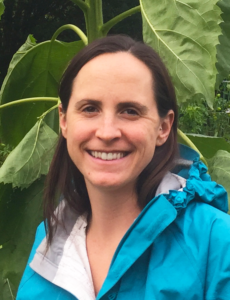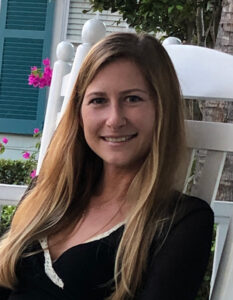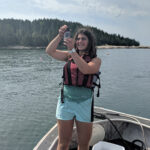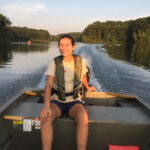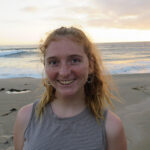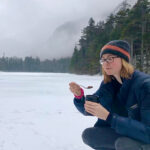Summer 2020 Newsletter
Message from the Director
While it may sound cliché to say “so much has changed since our last newsletter,” this time we mean it very literally. Our last newsletter was posted on March 4 during the Maine Fishermen’s Forum, the last time many of us were in a room together! All of our lives have shifted dramatically since then. We have captured a few of those shifts in the newsletter, but continue to work diligently to discover the best ways we can serve our coastal communities. As we respond to the COVID-19 pandemic, we are working with partners to help communities pivot to meet Maine’s economic stresses. Our recent focus has turned to supporting innovation and entrepreneurship to meet coastal communities’ immediate and emerging challenges. We are also making changes throughout our program and with partners to address Diversity, Equity, and Inclusion and systemic racism. Please read on to learn more, and do reach out with your thoughts.
General Updates
Maine Sea Grant hires three new team members
Click below to learn more about our newest Marine Extension Associates.
Maine Sea Grant establishes Diversity, Equity, and Inclusion working group
Maine Sea Grant has formed a Diversity, Equity, and Inclusion (DEI) working group to provide our staff with opportunities for professional development and personal growth. We intend to focus that growth into action so that Maine Sea Grant can better serve Maine’s coastal communities. The working group meets monthly and is one of multiple DEI activities our program has advanced. Over the past two years, we have updated our staff, student fellowship, and advisory committee nomination and recruitment processes. And we remain committed to learning more and converting our learning into change, through work with our many partners and communities, toward a shared goal of ending systemic racism.
Research
Maine Sea Grant funds four program development projects this spring
Each year, Maine Sea Grant allocates part of its budget for Program Development (PD) funds. Awards are generally for small research and proof-of-concept projects with the intent of seeding an idea for later development into larger funding proposals. We also support extension, education, communications, travel, graduate students, and workshops or conferences. This spring, Maine Sea Grant funded four projects:
● A tagging study to understand sea scallop (Placopecten magellanicus) growth and movement in the Lower Penobscot Bay
● Are lobster habitats changing as an indirect effect of climate change?
● Linking ecological and social resilience in coastal communities
● Quantifying soft-shell clam fecundity across two regions of the Maine coast
Our next round of program development grants will be awarded in the fall. Applications are due by October 1, 2020.
Maine Sea Grant helps monitor important commercially harvested fish species in Washington County
Maine Sea Grant has partnered with Maine Department of Marine Resources, Downeast Salmon Federation, Passamaquoddy Tribe, and two communities to assess populations of alewife (Alosa pseudoharengus) and blueback herring (Alosa aestivalis) in eastern Washington County. The work will provide information for opening one new commercial harvest and maintaining one existing commercial harvest for these two species, collectively known as river herring.
Maine Sea Grant continues work on Saltonstall-Kennedy Program scallop project
Maine Sea Grant is partnering with researchers from University of Maine to wrap up fieldwork on a year-long scallop study that examines different culture methods, stocking densities and sites, to assess growth and survival. The project, funded by NOAA’s Saltonstall-Kennedy Program, includes financial models through collaborations with Coastal Enterprises, Inc. and the Maine Aquaculture Association, and environmental parameter models through the Brady Lab at the University of Maine.
Extension and Community Engagement
Maine Sea Grant radio programming addresses community COVID-19 questions
Maine Sea Grant’s Coastal Conversations radio show has provided programming, including short blurbs on WERU’s daily news program “Maine Currents,” on COVID-19 topics ranging from direct seafood sales while normal seafood outlets are closed to safe recreational boating during a pandemic. Our regular monthly public affairs show airs on the 4th Friday of each month at the prime time of 4 PM.
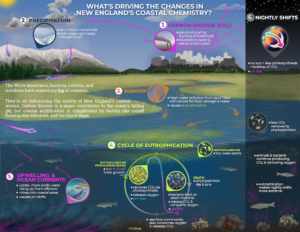
Signs of the Seasons Citizen Science Program sees increased activity during COVID-19
Maine Sea Grant and UMaine Cooperative Extension’s Signs of the Seasons phenology monitoring program is celebrating its 10th Anniversary in 2020. To stay accessible during the COVID-19 pandemic, the program developed and presented a series of online volunteer trainings in April, and the program saw a 36% increase in the number of recorded observations in March and April of 2020, as compared to 2019.
Marine extension staff offers expertise on ocean acidification action planning and outreach materials
Extension Professor and Maine Sea Grant Climate Change Lead Esperanza Stancioff presented to 175 participants at the International Ocean Acidification Alliance-sponsored webinar, Ocean Acidification Action Planning. She shared the history of Maine Ocean and Coastal Acidification (MOCA) Partnership. Stancioff also helped develop new infographic resources produced by the Northeast Coastal Acidification Network (NECAN).
Week-long seaweed celebration helps open new markets for the industry
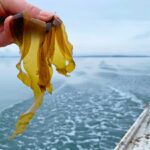 Maine Sea Grant and partners celebrated Seaweed Week, an annual state-wide food festival that showcases edible seaweed and supports Maine’s burgeoning kelp industry. Sea Grant has partnered with Seaweed Week to develop consumer-friendly outreach materials, such as recipes, educational resources, environmentally-friendly packaging, and an online platform for kelp sales, for farmers to use to market their fresh kelp direct-to-consumers. Already this has resulted in over 250 direct sales opportunities for Maine kelp farmers, establishing new and responsive markets for this unique crop.
Maine Sea Grant and partners celebrated Seaweed Week, an annual state-wide food festival that showcases edible seaweed and supports Maine’s burgeoning kelp industry. Sea Grant has partnered with Seaweed Week to develop consumer-friendly outreach materials, such as recipes, educational resources, environmentally-friendly packaging, and an online platform for kelp sales, for farmers to use to market their fresh kelp direct-to-consumers. Already this has resulted in over 250 direct sales opportunities for Maine kelp farmers, establishing new and responsive markets for this unique crop.
Education and Workforce Development
Maine Sea Grant and NOAA’s Northeast Fisheries Science Center (NEFSC) launch Undergraduate Internship in Diadromous Ecosystem Research Program
Four students from Maine universities have been selected for a 13-week paid internship to help with and learn about diadromous fish research. Starting June 1, students have been working remotely with mentors from University of Maine – USGS Cooperative Fish and Wildlife Research Unit, Penobscot Nation, and Maine Sea Grant. The student working with Maine Sea Grant will analyze fisheries data and investigate population dynamics and the relationships between distribution and environmental variables.
|
|
|
|
|
Technology transfer supports a developing scallop farming industry
Maine Sea Grant, UMaine researchers, and partners have been working with Maine sea scallop farmers to develop new equipment that will serve this emerging industry. With support from the University of Maine’s Research Reinvestment Fund (RRF), Marine Extension Team member Dana Morse is working with a design and fabrication company to develop a machine capable of washing biofouling, such as mussels, barnacles and seaweed, from the nets used to grow scallops. Once in use, this technology will greatly reduce time and labor costs.
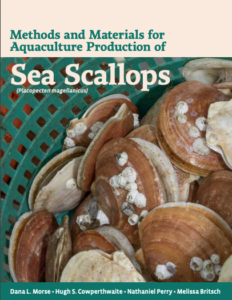
New scallop aquaculture handbook now available
A newly published scallop farming handbook, Methods and Materials for Aquaculture Production of Sea Scallops, outlines the basics of scallop aquaculture for existing, new, and prospective scallop farmers. The handbook details scallop biology, equipment and husbandry, site selection, and seed collection practices, and includes a draft cash flow statement for farmers who are tracking revenue and expenses. The handbook was written and produced in partnership with UMaine Cooperative Extension, Darling Marine Center, Coastal Enterprises, Pine Point Oyster Company, Northeast Sustainable Agriculture Research and Education program and with the support and expertise of numerous scallop producers.
Collaborations
Maine Sea Grant is involved with and supports the work of many diverse collaborations throughout the state and in the region.
American Lobster Initiative
The Sea Grant American Lobster Initiative (ALI), funded by the National Oceanic and Atmospheric Administration’s National Sea Grant College Program, addresses critical knowledge gaps about American lobster and its iconic fishery in a dynamic and changing environment. The initiative supports both a regional extension program, which is coordinated by Maine Sea Grant, and a research program.
-
- Welcoming a new coordinator
ALI welcomed Amalia Harrington as the Northeast Regional Lobster Extension Coordinator. Harrington will work with Northeast Sea Grant staff and partners to tailor regional outreach and communication efforts for the needs of local stakeholders. She will also lead lobster extension work in Maine and will work in partnership with Maine lobster industry, research, and management communities. - Launching a new website
ALI launched a new website to document and share work generated by ALI extension and research projects. The site is maintained by Maine Sea Grant, but highlights the researchers, extension professionals, and work done throughout the initiative.
- Welcoming a new coordinator
The Alliance for Maine’s Marine Economy
The Alliance, a responsive network dedicated to the growth of a vibrant marine economy for Maine, is coordinated by a Marine Extension Team member. Maine Sea Grant is excited to share the Alliance’s work with you.
-
- Going (temporarily) virtual
COVID-19 brought face-to-face interactions, including meetings and industry field trips, to a screeching halt in March. Determined to continue the vital work of connecting industry, businesses, and individuals across all of Maine’s marine economic sectors, the Alliance moved their Spring Gathering online. The event turned into a webinar for over 50 industry members and other professionals focused on Maine Coast Fishermen’s Association’s report, The State of Maine’s Working Waterfront. - Pivoting in response to COVID-19
The Alliance is currently hosting a series of webinars called Pandemic Pivots with the goal of sharing stories and innovations, and inspiring people to try new things. Each webinar features two speakers from the seafood business sector to share how COVID-19 has impacted their businesses and what innovative strategies they are using to adapt to changing markets and consumer needs. Follow the Maine Sea Grant Facebook page to get the most up-to-date information about the next Pandemic Pivot webinar. - Helping with successful $2 million EDA grant
On April 8, the U.S. Economic Development Administration announced it would award two million dollars (matched by $500,000 of local investments) to Maine to boost the state’s marine economy. The Alliance brought together partners to develop this proposal focused on developing a roadmap for growth and greater resiliency in Maine’s marine economy. - Starting new mailing list to share new technologies, strategies, and resources
The Alliance launched a mailing list as a tool to help match capacity, knowledge, and resources with the needs of this network. Industry and other partners share relevant and timely information and resources (e.g. upcoming events, opportunities for collaboration, lessons learned with new technologies and infrastructure, strategies to cope with COVID-19, etc.)
- Going (temporarily) virtual
Maine Aquaculture Hub
The Maine Aquaculture Hub was formed to help strengthen the aquaculture industry in Maine. Maine Sea Grant is a founding partner, coordinating all activities and a member of the Hub’s Steering Committee.
-
- Working towards a 10-year Roadmap for Maine aquaculture
The Maine Aquaculture Hub is working with sea farmers, government agencies, nonprofits, researchers, and more to develop this 10-year plan to help sustainably grow aquaculture in the state. The Hub has already held several focus groups engaging industry and Maine DMR staff, and will continue holding focus group meetings throughout the rest of the summer and into the fall to capture input from stakeholders across Maine. - Welcoming a new coordinator
The Maine Aquaculture Hub welcomed Heather Sadusky as its new coordinator. Sadusky will be working with Hub partners to expand training in response to workforce needs, support the development of a 10-year roadmap for aquaculture in Maine, and evaluate Hub impacts. She will also help coordinate partner efforts and support the Hub Steering Committee.
- Working towards a 10-year Roadmap for Maine aquaculture
In the News
-
- MaineBiz posted an article on the Maine Aquaculture Hub and its new coordinator.
- Maine Calling highlighted Signs of the Seasons, a Maine Sea Grant and UMaine Cooperative Extension program.
- Landings profiled the American Lobster Initiative’s new coordinator.
- NBC’s News Center Maine interviewed Jaclyn Robidoux to discuss Maine Seaweed Week’s move to an online platform.
- Coastal Conversations radio program moved to prime time!

